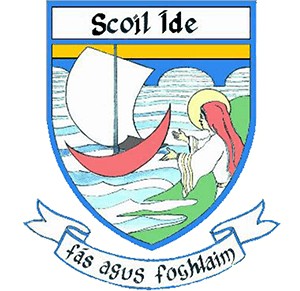School Chaplaincy
“The glory of God is people fully alive.”
The role of the school chaplain is a vital one in the life of Scoil Íde. The chaplains are regular visitors to the school where they work in conjunction with the teaching team in encouraging the children towards a deeper understanding of their faith.
The chaplains are involved in the following school activities:
- Visitation to the classrooms to support the work of the teacher in implementing the Religion programme.
- Communal Prayer. The chaplains lead the Senior Classes in Prayer Services for the weeks of Lent and Advent and other important liturgical occasions.
- The chaplains work with the Sacramental classes in preparing for the Sacraments of Reconciliation, Eucharist and Confirmation.
- Retreats are facilitated through the chaplains for the Confirmation Class.
- The chaplains celebrate the class masses which are offered in St. Munchin’s College Chapel at the 9.45 a.m. Mass.
- The chaplains prepare and celebrate the Graduation Mass for the 6th Class students and their families at the end of their primary education.
We hope that as the “Grow in Love” programme develops through the school with its very strong emphasis on the different expression of prayer; vocal, meditative and contemplative, that the Chaplains will be in a position to become involved with class prayer on a regular basis.
